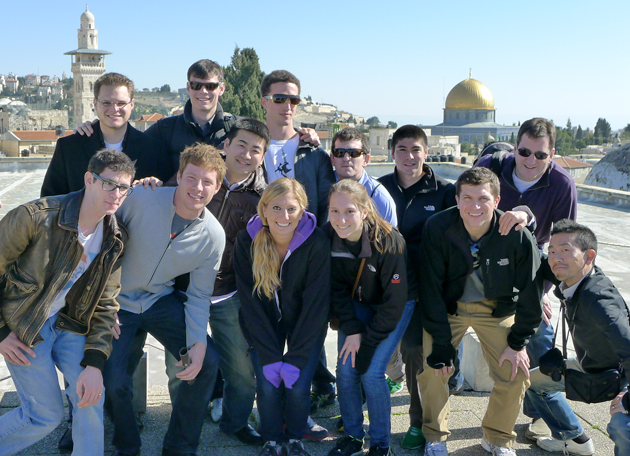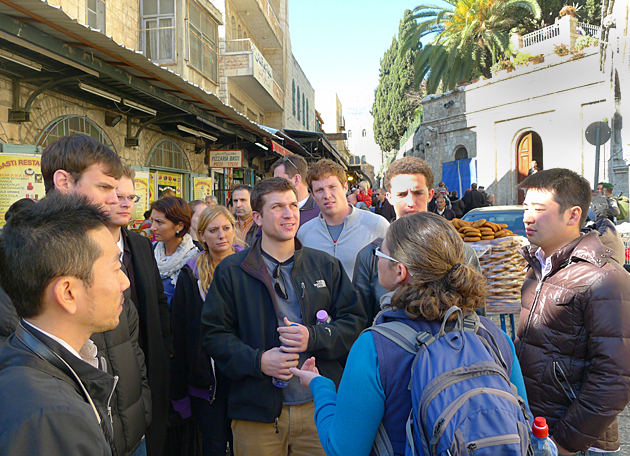
With a concentration of high-tech startups second only to the United States, Israel is considered the world’s next Silicon Valley.
Israel’s startup community is making headway in many technological fields, including medical devices and imaging, advanced chip design, wireless communications, cutting-edge Internet applications and more.
Twelve students from the Olin Business School viewed that innovation up close when they traveled to Israel in January 2012 as part of a venture-advising course.
While in Israel, Olin students talked with key investors from Gemini and Pitango venture capital companies and worked on a consulting project with a startup technology firm. The project involved collaborating with students from the Interdisciplinary Center (IDC) Herzliya, who are enrolled in their own version of Venture Consulting.
“The immersive experience in Israel was a unique and exciting opportunity for these students,” says Clifford Holekamp, senior lecturer in entrepreneurship at Olin and professor of Venture Consulting.
“Getting any kind of applied or experiential learning in the world of venture capital is difficult because the firms tend to be quite small,” he says. “Our students capitalized on this great chance to gain a solid grounding in venture capital.”
Jordan Zipkin, Business Class of ’13, says the opportunity allowed him to study a different and highly successful entrepreneurial climate.
“Business in Israel is far different from that in the United States,” Zipkin says. “Where American business can be coated in politics and appeasing your superiors, business in Israel has a large focus on tearing down the hierarchy.”
Scott Hampton, Business Class of ’13, adds, “Israelis are not as hesitant to say what’s on their mind. I like this way of business because it gets all information out on the table at a faster rate, so the team can come to a quicker decision.”
Hampton says that Israeli businesses also focus more on trial and error.
“An Israeli company might have an idea for a referral program and try it out immediately to see if it works,” he says. “An American company, on the other hand, is more likely to do significant research about a referral program before testing it out.”
Both students felt the trip was invaluable.
“I was able to greatly expand my awareness of the business culture in another country,” Hampton says. “The trip provided countless takeaways, especially the importance of friendship mixed with business.”
Hoping to work with a startup company in the future, Hampton is currently consulting for BillGuard, a company that provides antivirus software for people’s bills.
“My team is developing an innovative, integrated referral program aimed at gathering more users,” he says.
Zipkin, co-founder of Symblia, an online marketplace exclusively for members of a college community, plans to continue working on his startup after graduation.
“My experiences in Israel put my other business classes into perspective,” he says. “I look forward to using the critical analytic and leadership skills I have developed in real-world applications.”

Comments and respectful dialogue are encouraged, but content will be moderated. Please, no personal attacks, obscenity or profanity, selling of commercial products, or endorsements of political candidates or positions. We reserve the right to remove any inappropriate comments. We also cannot address individual medical concerns or provide medical advice in this forum.